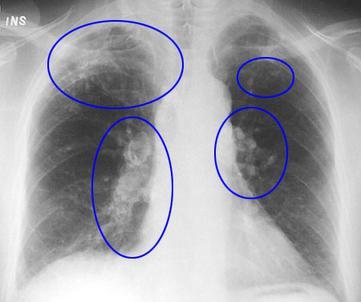When Queensland stonemason Garry Moratti was diagnosed with silicosis in 2017, the message from his doctor was clear – either give up work or die.
So Mr Moratti was forced to abandon the career he had enjoyed from the age of 15 as he battled the lethal lung disease, which has left him with a life expectancy of just four to five years.
But while the incurable workplace illness – which is becoming increasingly common among Australian stonemasons – is horrendous enough, Mr Moratti and his family have also been dealt another blow.
Mr Moratti is a Sunsuper member, and he assumed he would be eligible for total permanent disability (TPD) insurance, which is usually a lump sum payout awarded to a client who has been permanently disabled and is unable to work again.
But earlier this year he learned the company had switched to a “drip feed” policy in 2016, meaning eligible clients now receive six instalments across six years instead of one large payment.
Sunsuper is the only insurer in the country with this policy, which drip feeds claimants and requires them to be continually assessed – even when their conditions are terminal.
Mr Moratti, who shared details of his illness on The Sunday Project last year, told news.com.au the situation was devastating, and that a lump-sum payment would help him enjoy the time he had left and help prepare his wife and three children for his death.
While the 51-year-old had $93,000 in total permanent disability insurance, Sunsuper’s policy means he is only paid in $15,000 instalments, made worse by Mr Moratti not having income protection insurance.
He said the policy was “ridiculous” and “cruel” and urged other Sunsuper members to “triple check” their own policies.
“How can they be the only company that does this?” he said.
“My stress levels have gone through the roof and since being diagnosed, mainly because when I do go, I want to know at the back of my mind that my family are set – but I can’t do that because of this drip feed policy.
“It’s just not fair. It’s my money.”
A Sunsuper spokeswoman confirmed in a statement Mr Moratti was not eligible for a lump-sum payment.
“Total and permanent disability assist is a policy that offers protection and ongoing support to members if they were to become permanently disabled,” the statement reads.
“In early October 2019, Mr Moratti’s total and permanent disability assist claim was assessed and approved by Sunsuper and the first annual payment (first of six across five years) was made in late October 2019.
“Mr Moratti’s medical condition does not meet the conditions for a single lump sum benefit payment under the terms of this insurance policy.
“As a profit-for-members fund, our sole purpose is to act in the best interests of our members, and we will continue to support Mr Moratti under the terms of his insurance policy into the future.”
But Melissa O’Neil, Shine Lawyers superannuation insurance expert, told news.com.au she had “never seen anything as absurd and unfair” as this Sunsuper TPD assist policy.
“How can someone diagnosed with a terminal illness not be entitled to their total and permanent disability payment in full when they have worked tirelessly and contributed to their super fund for decades to cover them for exactly this sort of unexpected illness?” she said.
“It has been a devastating double blow for Garry and his family who are doing it incredibly tough financially while also trying to process the fact that Garry suddenly has a life expectancy of four to five years.
“All he wants to do now is enjoy the time he has left with his family, but instead he is suffering extreme psychological distress trying to work out how he can provide for his family.”
Ms O’Neil said she believed Sunsuper had “failed in its obligations to act in the best interests” of clients, and said there were likely thousands of other Australians who had the same policy without realising.
“As part of this ridiculous policy Garry is being drip fed small annual payments, and there is no certainty as to whether the next one will actually be paid – he has to reapply and be reassessed. For a fellow with a terminal illness, this is just insanity,” she said.
“This poor fellow has silicosis. He should be receiving the money in full and left alone with some financial certainty to enjoy what time he has left with his family.”
However, Mr Moratti isn’t the only Australian to be stung by this policy.
Last year, news.com.au spoke with former boilermaker and Sunsuper member Glenn Dickson, who was also denied a lump-sum payment even after losing a leg in a horrific shark attack.
According to Mr Dickson, Sunsuper’s policy meant he “couldn’t afford a wheelchair”, a decent prosthesis or other medical bills, let alone modify his home to make it disability-friendly.
WHAT IS SILICOSIS?
The progressive, irreversible lung disease is caused by long-term exposure to silica dust, which is created when artificial or engineered stone is cut.
Symptoms can include shortness of breath, cough, fever, cyanosis (bluish skin) and frequent chest infections that can eventually lead to lung transplants and death.
While silicosis deaths are dropping globally, there has been an alarming spike in cases among Aussie tradies believed to be linked to cutting engineered or artificial stone products used to make kitchen benchtops.
The toxic dust has been dubbed “the new asbestos”, and a 2017 Queensland Parliamentary inquiry into coal workers’ pneumoconiosis (black lung) was told silica was “more dangerous than coalmine dust”.
The condition is so devastating the Queensland Government ultimately banned the dry-cutting of engineered stone benchtops, which exposes workers to the illness.
If you are concerned about silicosis and are based in Queensland, where the majority of cases have been diagnosed, contact WorkCover on 1300 362 128 to arrange a health screen.
Source: https://www.news.com.au/finance/work/at-work/stonemason-with-incurable-silicosis-denied-lump-sum-payout-by-insurer/news-story/319232f9ed96502bddbb6cdd92e06e66



